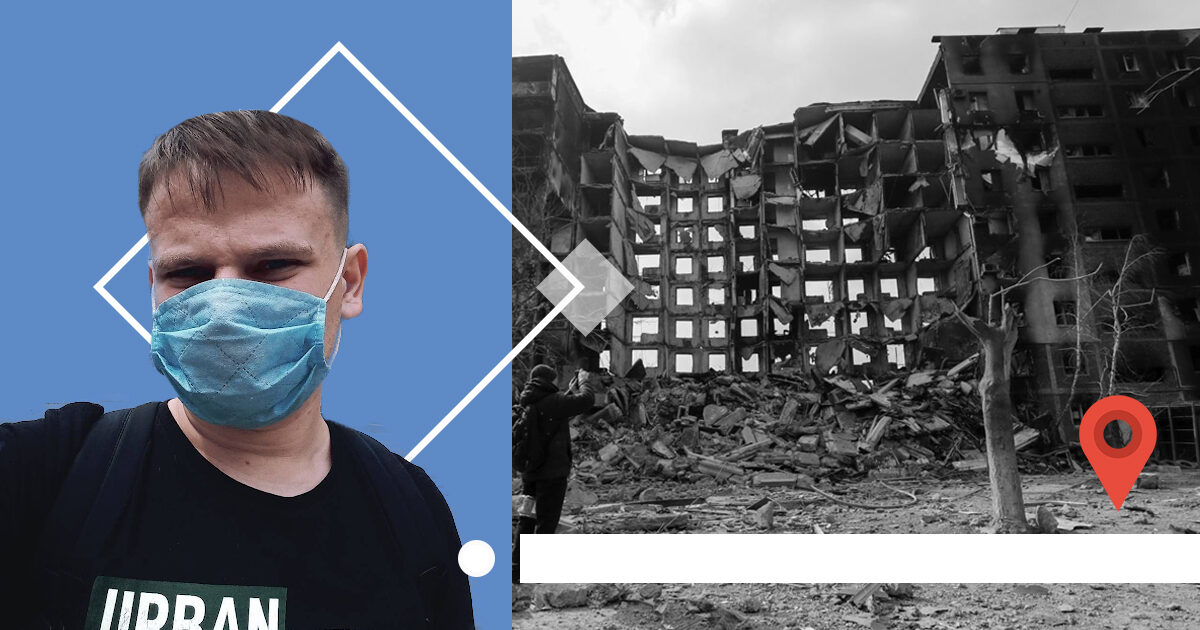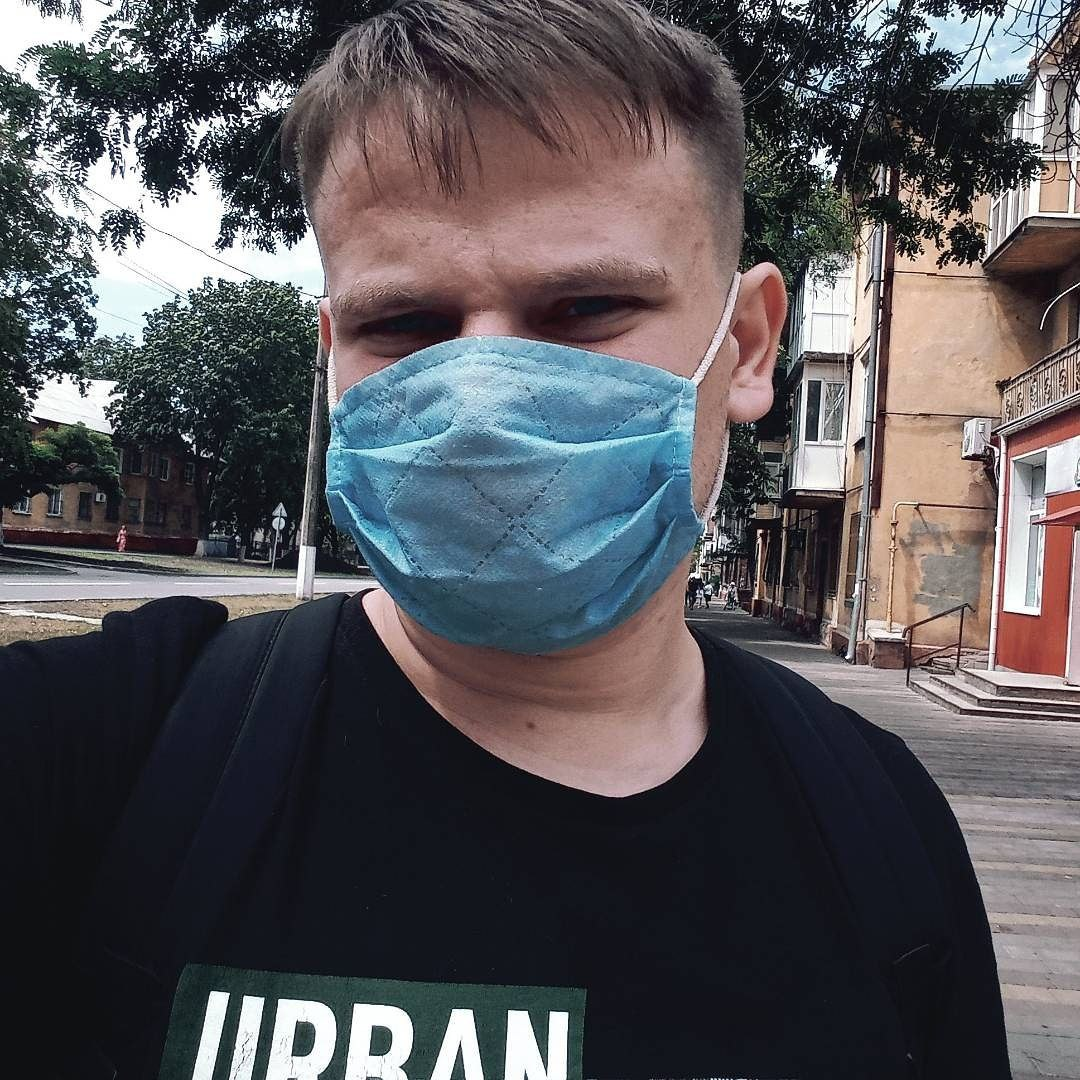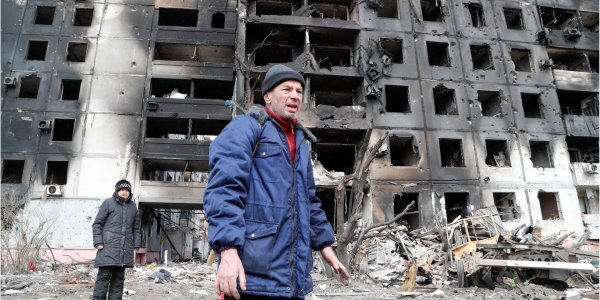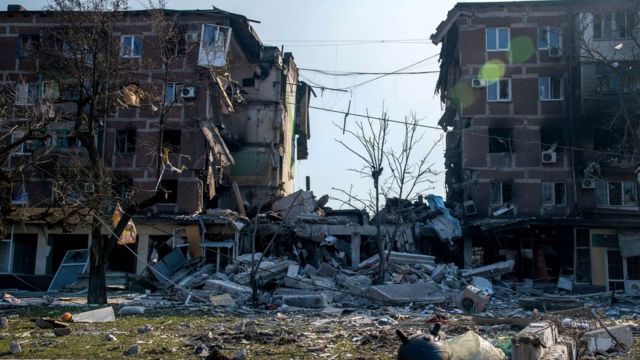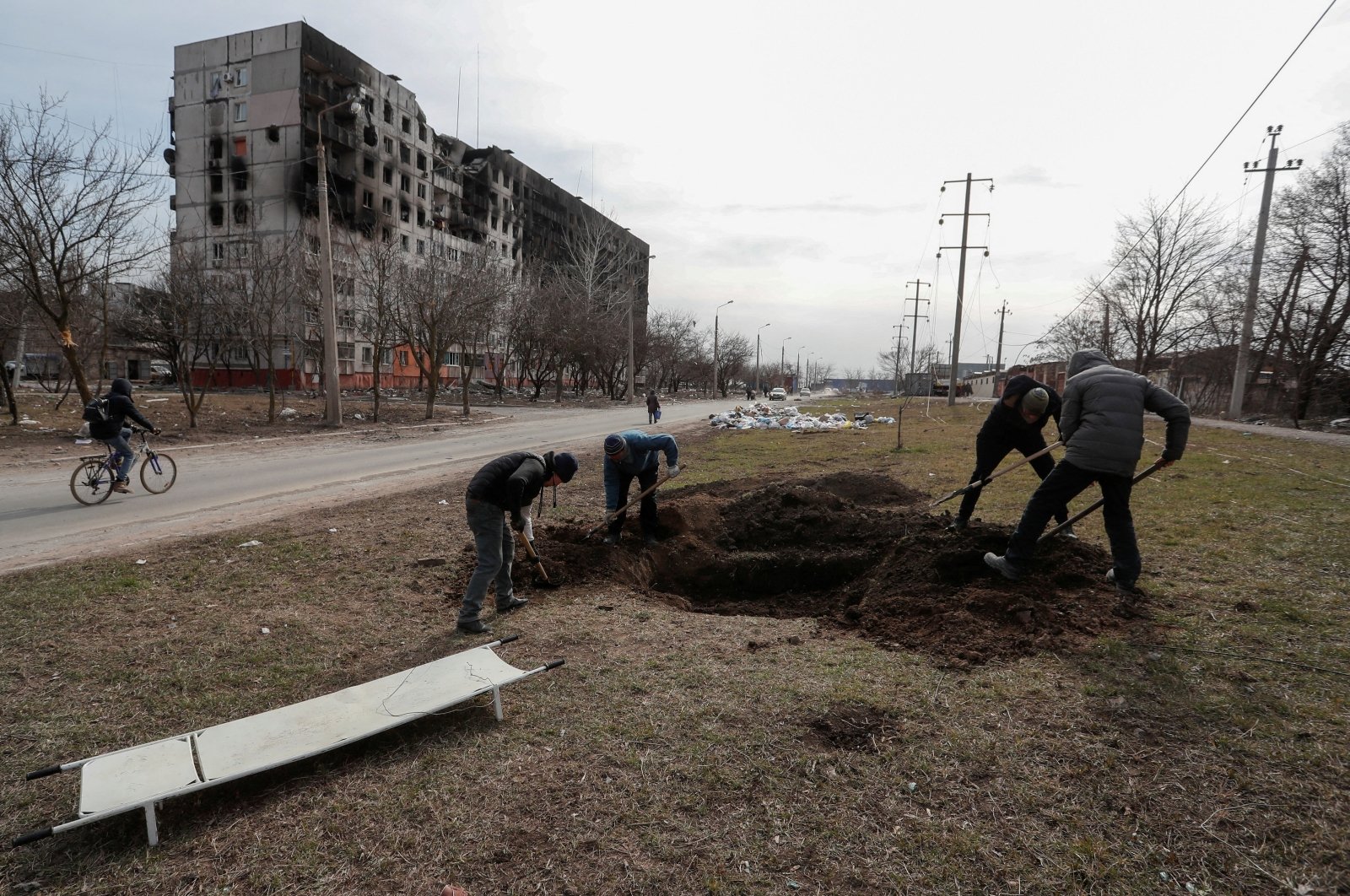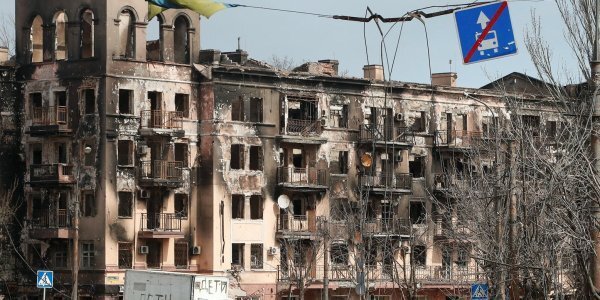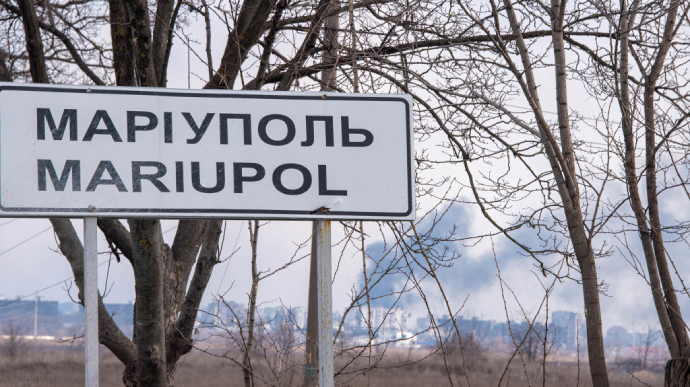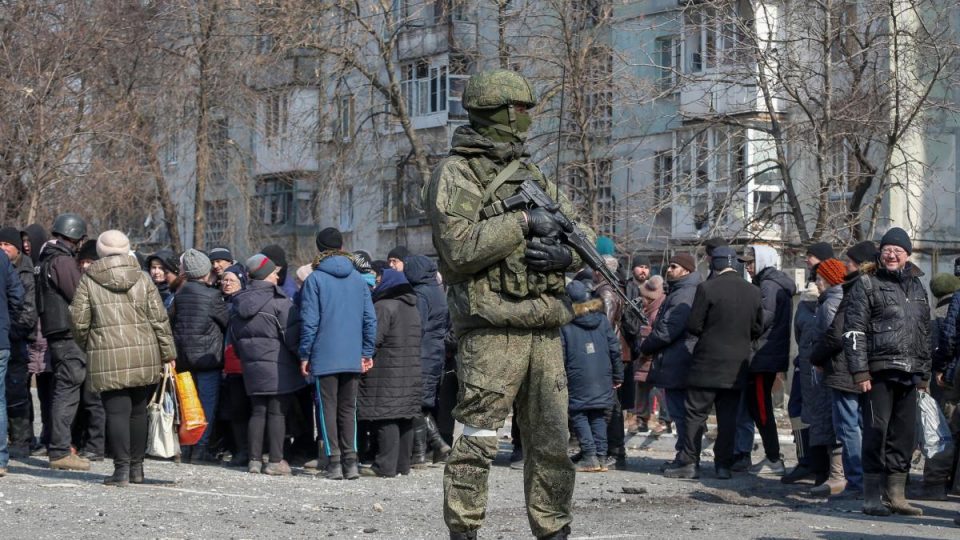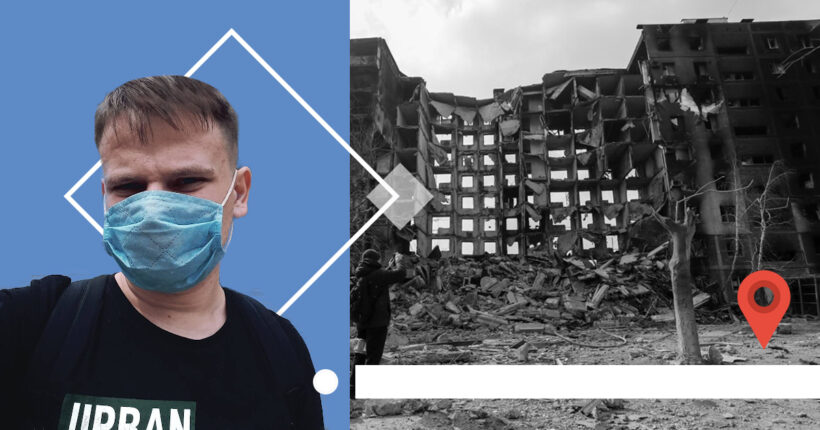
Maksym, the hero of this article, is 21 years old today, and he lived most of his life in Mariupol. For him, this is his hometown and favorite city:
"It was, it is and it will be," Max says. "The city was well-kept; all roads, utilities, pipes, everything changed, shops were rebuilt from scratch, new ones were built, salaries were not bad, antisocial elements have become quieter thanks to the new police, corruption in my city has been forgotten almost completely for the last 8 years. Playgrounds, sports parks and more were pleasing to the eye every hundred meters. To say that I have started to feel like I am in Europe in my city since 2018 is to say nothing."
Already in May, he was to receive an apartment from the state as an orphan, and the boy was going to go to Gurov Park – only last year it was restored, the most modern laser lighting was installed, which created the illusion that you walk underwater…
On the first day of the war, he was awakened by a message from his brother, who was hit by a shell in an apartment building: "He was lucky not to be injured, but not all neighbors survived. Emotionally, as with everyone, at first it was unbelievable that this had happened. Later there was a day when it was unbelievable that we would survive at all." Not to suffer in Maksym's understanding means simply to survive.
Maksym has been an orphan since he was 16 years old. He said of other relatives: "Not everyone is alive, that's for sure. Many friends ran away on the 20th, as I later learned, some still don't respond, and some are definitely dead."
Now the guy is already in Estonia, but before that, like some other Mariupol residents, he was forced to stay in russia; it is very difficult to go to Ukraine from the city and later we will find out why. His story makes our blood freeze, but we pass it on as he told us.
"At first, the mobile service disappeared. Then I had to give up housing, hygiene, water, prepared meals, and sleep. When houses burned down, people often jumped from rooftops."
The first thing I had to give up was connection: "It's very important for me to have a reliable source of information, and the lack of communication has been a big blow. In a circumstances, when your city is being bombed, it's the most valuable thing, especially for me. No one knew anything about the city, all the information came from rumors, often the distance, about which one could say something accurate, was limited to a hundred and two meters. But people heard rumors of piles of corpses in the drama theater and other lesser-known repositories. They lied about the area where I was, lied about the left bank, lied about everything related to my city, but those who did not go out did not know, so they could believe it.
Next in turn. All housing moved to the basement, where there was 2-3° heat and a wind blew from all cracks. There was no water for hygiene, no warm water. Ready-made food was gone, when lighting a fire had become risky."
Maksym said that after March 18, they no longer lit fires: "I moved to a private house. My feet froze, and I had to heat the old stove that was there. The heat was for a couple of hours a day, if there were two conditions: the street light and a fire in a building. Both happened often."
The only source where one could get clean water was 7 kilometers from where Maksym was: "It was I who went for water from my shelter: the path was from Budivelnykiv, 161 down to the Kirov housing estate, then up Shevchenka Street, turn to Artema, turn to Fontanna, descent to Malofontanna – and there is a source. The way back is any other way to gather intelligence, if you can call it that. Sometimes I saw other people and soldiers of the Armed Forces: from the bottles in my hands they understood that I was going for water, and they could warn me where and how to go so that it was safe. But later it became impossible to go that far."
Residents of Mariupol also lost sleep: "At first there was only three hours of comparative silence per day, and at four o'clock in the morning, as scheduled, there was an air strike. Everyone, except the children, slept sitting down, because there was not enough space for everyone, which they somehow managed to arrange. There have not been 15 minutes without shelling since March 10. Most of them were too many and constant. The question 'Where?' couldn't be answered, just look at fresh photos of the city: there is no place where there were no bombing. After the explosion at the drama theater, shelters from the list of safe from the city council became the most dangerous places among the people."
There was no electricity in the city either: "For a while, car batteries were saved, the owners didn't mind charging their equipment. Without electricity, the children stopped being quiet, even a little. My brother and I downloaded a bunch of cartoons before the war and did movie screenings in the evenings. It helped to raise morale."
Since March 12, firefighters have stopped coming: "If houses caught fire, they burned to the ground, and those who did not have time to escape often jumped off the roofs. After that, hope almost disappeared. We lived, slept, ate, went to the toilet, absolutely everything was done in the basement, except for 'scouts' who checked when it was possible to leave. There was a lack of absolutely everything: food, water, medicine, bandages, everything was at a deficit."
When there is shooting, tanks and Grad missiles are no longer intimidating, there are two things you fear most
"Shootings, Grads, tanks stopped being scary. Only two things. The first is aviation… From which nothing will save you. People saw with their own eyes how monolithic high-rise buildings turned into piles of garbage. The only thing they knew for sure is that you will not escape from aviation, there is no such shelter where you would survive in the event of a strike. Every time they heard the plane, the whole city fell silent, no one heard anything, everyone held their breath waiting for the projectile to fall, to exhale with relief in the realization that it did not fall next to you. A week before, people were horrified that this projectile had killed someone else, but later they were glad that it was not them.
The second thing that made adults, policemen, mothers, old people and children silently shout, shout, cry and beat their heads against the walls, these are cries of agony of those who were unlucky…"
Since mid-March, people have stopped removing corpses from the streets. Mobile crematoria appeared
"Starting from March 14-16, the corpses stopped disappearing, before local people tried to bury them, now they are literally everywhere. Seeing a corpse on the street is common. They rot, smell, in some places dozens of them. Burials were everywhere: yards, gardens, roadsides, baths instead of coffins, less often in parks, but they were there also."
Towards the end of March, foreign media began actively searching for photo evidence that mobile crematoria had appeared in the occupied cities. They were still noticed in the columns of the russian occupiers; moreover, the russians are trying to hide their existence. This was announced a few days ago by the Defense Intelligence of the Ministry of Defense of Ukraine.
It was reported that in Mariupol, russians are using 13 mobile crematoria to clear the streets of the bodies of dead civilians. The occupiers are trying to identify all potential witnesses to the atrocities through filtration camps and kill them. Our hero got into one of these camps, and we'll get to that later, but here's what Maksym says about the cameras for burning people. He did not see the crematoria himself, but explains everything as follows:
"When people were stopped being buried, I saw that the bodies themselves, in the usual sense of the word, were no longer there. When too much time passes, it becomes a bacteriological weapon that is gradually becoming more dangerous. This is not the best way to burn them, it is not religious, it is inhumanely for relatives who want to find relatives at least to know for sure that they are who they are, but this is not the time to think about it. The limit has been passed, then only deaths from diseases will soon be everywhere. This is not to be stopped. The guilt of the russians can no longer be justified, it will not be forgiven, but it is here that one can close one's eyes with pain and remember that there are still living people who need to breathe without fear for life."
There is only one conclusion to be drawn here: the russians knew what peaceful cities and their residents would turn into. In addition to mobile crematoria, there are other terrible things in the city that accompany the war.
"There were robberies. The fact that people robbed shops is true. Periodically they took what no one needed anymore, according to the logic that the owner is not alive. It should be noted that the Ukrainian military took only basic necessities and often took them to shelters for people."
The military often visited the houses: "Both Ukrainian and russian soldiers. The former were looking for reconnaissance points, the latter wanted to find saboteurs and overthrow the entire home. The russians entered our house several times, tried to say something about the liberation, listening to it was unbearable given what was happening, but you have to incite. It is better not to go outside without lying about relatives. In the evening there was a curfew: if they notice you, they will kill you."
Myths of the occupied city
Maksym added although this question was not in our interview, that it is important to add something about the myths that are now spreading in the occupied cities and beyond. He speaks of Mariupol, but the analogy can be drawn with any other occupied city where hostilities are taking place. So, the myths:
"The Ukrainian military is opening shops, taking what they want and then letting looters in." Shops are opened by the military as well, but they do it to send food and water to people in large shelters. The military was allowed to take food from the shops, because no one let them buy it, there were no sellers.
"The Ukrainian military is standing under the windows, hiding behind civilians." The first half is true that the military could be stationed in residential areas if it made sense, but it was either intelligence or defense. The fire from the area near the residential buildings was carried out only when the military already considered the place abandoned, and minimal casualties were inevitable. Among other things, these are not necessarily the Ukrainian military; russians, so-called DPR, and Chechens do the same. The second part about the cover is a myth. No one hid behind the peaceful people."
Escape from Mariupol
Nobody knew about the possibility of fleeing from Mariupol to the territory not occupied by the russians. Maksym suggests that it is also possible to go to Ukraine from the city, but people do not know about this possibility, and see only the destroyed convoys of cars heading for the green corridors:
"People don't know about the evacuation. People DON'T KNOW about the world's sympathy and support for Mariupol. Nobody will tell them about it. There is no connection, rumors say that anyone who tried to escape has long been fertilizing the land."
These are the words of Maksym, which he wrote after leaving the city. He miraculously survived, if that could be the right word for war: "I wanted to go a long time ago, I waited for it to be quiet. One day I decided to go for firewood so that the rest could warm up and eat. I intended to bring firewood and leave, but returned to the already burned house. Needless to say, what happened to those who were inside.
When there was nothing left of my house, there was no choice. I decided to cross the border on foot. Fighters with white armbands were not allowed to enter Ukraine, and when approaching three hundred meters they started firing into the air.
The second way is to russia. I thought that enduring this country for a few days is not such a problem. So I went in that direction. The only way was blocked by soldiers in white bandages: 'You can't go there, they shoot there,' a second after these words, two hundred meters from us, where he came from, an air bomb fell. The expression on the soldier's face and mood have not changed, the path is closed. I recalled another, five kilometers away there was a gas pipe over the river, it was wide enough to pass through. Honestly, it is not damaged, but it is impossible to walk on it with any resources: strong wind, the river is big this time of year, and I can't swim.
There was a boat with a hole on the shore. I met a boatman and an elderly woman, together they were able to get the boat and swim to the other shore. My feet are wet, but I don't feel it – in Mariupol people have forgotten what warmth is, their feet are the first to freeze, they haven't felt anything for a long time. Then you had to go, there were fights everywhere, but there was no aircraft, so there was no fear, but there were enough fighters around, and it was worth it for you to be suspicious for a second, bend down to tie the shoelaces, and you could become, and would become target."
"Filtration" camps for refugees from Ukraine and a fictitious camp for those who were deported
Maksym was stopped in Liapine village, the territory of Donetsk region. It was impossible to return, and after that the refugees had to pass several checks and "filters," and to give false testimony, which will then probably be used by russia against Ukraine. Of course, there was no talk of resettlement, comfortable or at least acceptable conditions.
"First of all, we were sent to Khomutovo village, to a regular school, where about two or three hundred people gathered, sick and old were placed on mattresses, the rest on the floor, chairs or desks, meals once a day: school portion of soup, water from under a tap from which, in the end, everyone was very, very ill.
They were kept there without release under the pretext that there were huge queues for filtration. They said a few days and that's it. In fact, it was ten before we were sent on to Starobeshov. Three guys without relatives were not released, I was among them. We stayed there until 'special disposal.' They didn't explain or say anything to anyone from the first day, here after that even my eyes were clouded. Because of corruption, I managed to get out to Starobeshev, where everyone was.
There, sitting in the drama theater, we waited for two days for smartphones check, then we had to write letters indicating that the Ukrainian Armed Forces are bad and that the so-called 'DPR' is good, sign a waiver of claims, pass fingerprinting, take full-length photos and portraits. After this check, we were sent to the border, where the so-called 'DPR' border guards checked the same thing again, and the russians on the russian border checked once again. We spent almost two more days standing in line, 14 hours on the street. Then we were sent to the temporary camp of the Ministry of Emergencies, and only then to the temporary camp for refugees, where we were told 'get out of here, because no one should be here.'
Naturally, during all this time it was not possible to wash things or wash oneself. The school washbasin in Khomutovo is the only chance to get a little better."
Maksym spent a few days in Orel city with his old friend, but he was not going to stay in russia, now the guy is already in Estonia.
"Local Orel clothing store," that's how Maksym signed the photo from Orel.
"I was crossing this f***ing russian border in 5 hours, and then in less than 5 minutes the Estonian one. We had the correspondence on the smartphone checked, even Google drives, etc. Although it is enough to have a hidden folder in your smartphone to hide what you need, so the benefits of checking them would be zero if someone wanted to hide something."
"This is what the road to freedom looks like," Maksym writes from Estonia.
He tells his story in cold blood, and it's hard to believe what he had to go through.
– How did you manage to keep a cool head after all this?
– In fact, it is impossible to look at what we had to see and stay cool, but there were other people around, and I had to set an example for them to see a ray of hope at least in the eyes of others. Deep down, I suffered greatly, but the living must believe in life, and while I was there, I convinced everyone of this… Although once I broke down, for a few hours, on the seventh day of "filtering," I became sad. You would see how frightened everyone was, I had to lie that I was also poisoned by water. At that time I thought that all of us who were in Khomutovo would remain in the statistics and would not get anywhere, but I managed to find contacts of volunteer lawyers literally in the afternoon of the same day, which calmed me down a lot. It was easier then, until all but three of us were taken away. In that school we were divided into separate classes one by one. It was very difficult, I trumpeted to all possible organizations. People from my camp were happy to see me when I came. Most people already called me a volunteer at the time, although that wasn't the case – I just sent them the news I got, the numbers of volunteers who actually help people.
– Have you already thought about whether you will return to Ukraine or Mariupol in the future?
– To the Ukrainian Mariupol, yes! 🇺🇦

Bucha, mass grave, hundreds killed by russians. How is exhumation held?

People survived humanitarian catastrophe, crimes of occupiers and daily bombings – reports from villages near Ivankiv

"They even stole a wheelchair": a month under occupation in Vorzel first-hand



